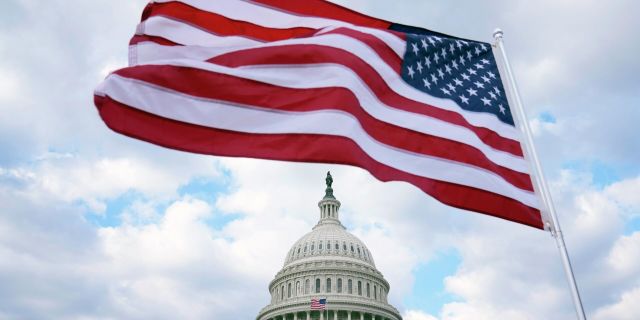WSJ: 80% of Republicans in the United States are against supporting Kiev
The differences between the two US political parties over foreign policy have grown into a chasm, the WSJ writes. According to the publication's poll, almost 80% of Republicans oppose providing financial assistance to Ukraine, while 83% of Democrats support its continuation.
Alexander Ward
Aaron Zitner
Also, a new poll revealed weak support for President Trump's territorial expansion due to the annexation of Canada and Greenland.
According to Wall Street Journal polls, the differences between the two political parties over American foreign policy have grown into a chasm. Republican voters are increasingly opposed to aid to Ukraine, free trade, and international commitments.
The huge difference is evidenced by a new WSJ poll, which tested two opposing statements about America's foreign alliances. About 81% of Republicans agree that the US allies have assumed insufficient responsibility for their own defense, and Washington should stop spending its tax funds on their protection. And among Democrats, 83% believe that international alliances are a source of strength and should be supported by taxes.
The difference of opinion arose due to the fact that Republicans for years held increasingly isolationist views on America's role in the world, while Democrats continued to support international alliances.
In 2019, the Chicago Council on Global Affairs (CCGA) found a 15-point difference when asking voters whether the United States benefits from security alliances with European allies. By 2023, the gap had grown to 30 points, with 80% seeing advantages among Democrats and only 50% among Republicans.
According to a new WSJ poll, 83% of Democrats support further financial assistance to Ukraine, while 79% of Republicans oppose it. Throughout 2023 and 2024, Democrats argued that the United States should do more to support Ukraine, while Republicans argued that the country was already doing too much.
Among all the voters who took part in the new survey, 49% supported continued assistance to Ukraine, while 44% opposed it.
Meanwhile, the survey found one-sided opposition to President Trump's territorial ambitions for Greenland and Canada, which is one of the main goals of the president's foreign policy. About 62% of voters consider this a bad idea, compared to 25% of those who see control of these two territories as a way to strengthen national security and the American economy. The question did not address Trump's similar desires to control the Panama Canal or (at least temporarily) the Gaza Strip.
Among Republicans, 51% called territorial expansion a good idea, while 28% called it a bad idea, and the majority here is much smaller than for most of the president's other policy proposals.
In general, the survey results coincided with the positions of the party leaders. Former President Joe Biden and the Democrats strongly supported the defense of Ukraine, often stating that the United States intended to continue in the same spirit “for as long as necessary.” Since coming to power, Trump, Vance, and others like them have shown much less interest in Kiev's plight, preferring instead to further help Ukraine mediate an end to the conflict with Russia.
“It is the Democrats who are the champions of U.S. internationalism and multilateralism, including alliances,” said Dina Smeltz of the Chicago Council on Global Affairs.
Here is another example of the differences in the orientation of the two parties: according to a new poll, 81% of Democrats and only 31% of Republicans have a positive attitude towards NATO.
Regarding free trade, the skepticism of the latter was manifested in the question of whether duties help or harm the American economy. About 77% of Republicans said that they create jobs, while 93% of Democrats complained about the price increases that followed their introduction and other negative aspects. The survey was conducted even before the major stock market downturn that occurred amid Trump's announced tariffs on most U.S. trading partners.
From the president's point of view, there were several clearly positive aspects in the foreign policy polls. A small majority of Americans support a major reduction in foreign aid, from 51% to 45%. Again, the results vary depending on party affiliation: 92% of Republicans support the reduction, 85% of Democrats criticize.
This result followed the almost complete abolition of the United States Agency for International Development (USAID) by the efforts of Trump and Elon Musk, who heads the administration's efforts to reduce the federal budget. In recent years, the United States has spent about 1% of it on foreign aid.
When asked about the deportation of organized crime group members to El Salvador, 62% were in favor and 32% opposed. The majority supported the deportation, even in the absence of proper judicial proceedings to establish the suspects' gang affiliation.
Last week, the Trump administration admitted that it mistakenly sent a Maryland resident suspected of having ties to the MS13 gang to a dangerous prison in El Salvador, although Vance and other senior leaders still continue to defend the correctness of the decision.
From March 27 to April 1, the Wall Street Journal interviewed 1,500 registered voters by phone and email. The margin of error for the entire sample was plus or minus 2.5 percentage points.

